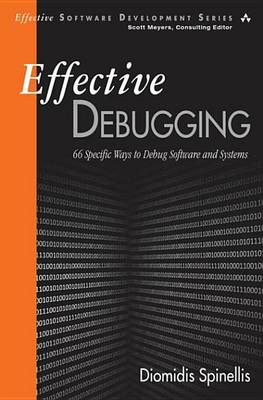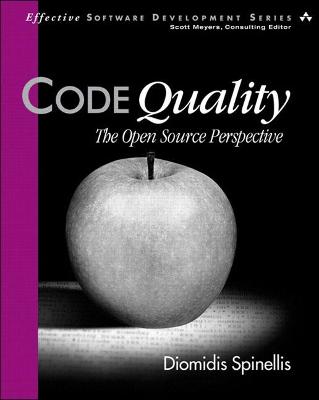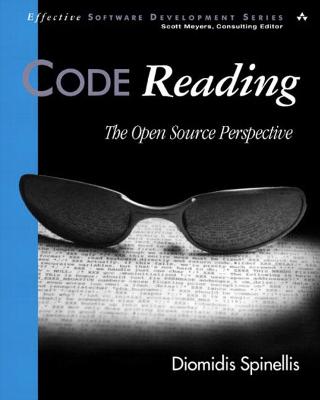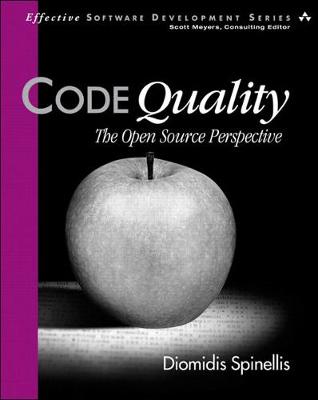Effective Software Development
4 total works
Every software developer and IT professional understands the crucial importance of effective debugging. Often, debugging consumes most of a developer’s workday, and mastering the required techniques and skills can take a lifetime. In Effective Debugging, Diomidis Spinellis helps experienced programmers accelerate their journey to mastery, by systematically categorizing, explaining, and illustrating the most useful debugging methods, strategies, techniques, and tools.
Drawing on more than thirty-five years of experience, Spinellis expands your arsenal of debugging techniques, helping you choose the best approaches for each challenge. He presents vendor-neutral, example-rich advice on general principles, high-level strategies, concrete techniques, high-efficiency tools, creative tricks, and the behavioral traits associated with effective debugging.
Spinellis’s 66 expert techniques address every facet of debugging and are illustrated with step-by-step instructions and actual code. He addresses the full spectrum of problems that can arise in modern software systems, especially problems caused by complex interactions among components and services running on hosts scattered around the planet. Whether you’re debugging isolated runtime errors or catastrophic enterprise system failures, this guide will help you get the job done—more quickly, and with less pain.
Key features include
- High-level strategies and methods for addressing diverse software failures
- Specific techniques to apply when programming, compiling, and running code
- Better ways to make the most of your debugger
- General-purpose skills and tools worth investing in
- Advanced ideas and techniques for escaping dead-ends and the maze of complexity
- Advice for making programs easier to debug
- Specialized approaches for debugging multithreaded, asynchronous, and embedded code
- Bug avoidance through improved software design, construction, and management
Page 143: Are Trojan Horse attacks for real?
Page 158: Where should I look when my application can't handle its workload?
Page 256: How can I detect memory leaks?
Page 309: How do I target my application to international markets?
Page 394: How should I name my code's identifiers?
Page 441: How can I find and improve the code coverage of my tests?
Diomidis Spinellis' first book, Code Reading, showed programmers how to understand and modify key functional properties of software. Code Quality focuses on non-functional properties, demonstrating how to meet such critical requirements as reliability, security, portability, and maintainability, as well as efficiency in time and space.
Spinellis draws on hundreds of examples from open source projects--such as the Apache web and application servers, the BSD Unix systems, and the HSQLDB Java database--to illustrate concepts and techniques that every professional software developer will be able to appreciate and apply immediately.
Complete files for the open source code illustrated in this book are available on the Code Reading CD-ROM and online at: http://www.spinellis.gr/codequality/
This book is a unique and essential reference that focuses upon the reading and comprehension of existing software code. While code reading is an important task faced by the vast majority of students, it has been virtually ignored as a discipline by existing references. The book fills this need with a practical presentation of all important code concepts, form, structure, and syntax that a student is likely to encounter. The concepts are supported by examples taken from real-world open source software projects. The focus upon reading code (rather than developing and implementing programs from scratch) provides for a vastly increased breadth of coverage.
- Page 26: How can I avoid off-by-one errors?
- Page 143: Are Trojan Horse attacks for real?
- Page 158: Where should I look when my application can't handle its workload?
- Page 256: How can I detect memory leaks?
- Page 309: How do I target my application to international markets?
- Page 394: How should I name my code's identifiers?
- Page 441: How can I find and improve the code coverage of my tests?
Diomidis Spinellis' first book, Code Reading, showed programmers how to understand and modify key functional properties of software. Code Quality focuses on non-functional properties, demonstrating how to meet such critical requirements as reliability, security, portability, and maintainability, as well as efficiency in time and space.
Spinellis draws on hundreds of examples from open source projects--such as the Apache web and application servers, the BSD Unix systems, and the HSQLDB Java database--to illustrate concepts and techniques that every professional software developer will be able to appreciate and apply immediately.
Complete files for the open source code illustrated in this book are available online at: http://www.spinellis.gr/codequality/



